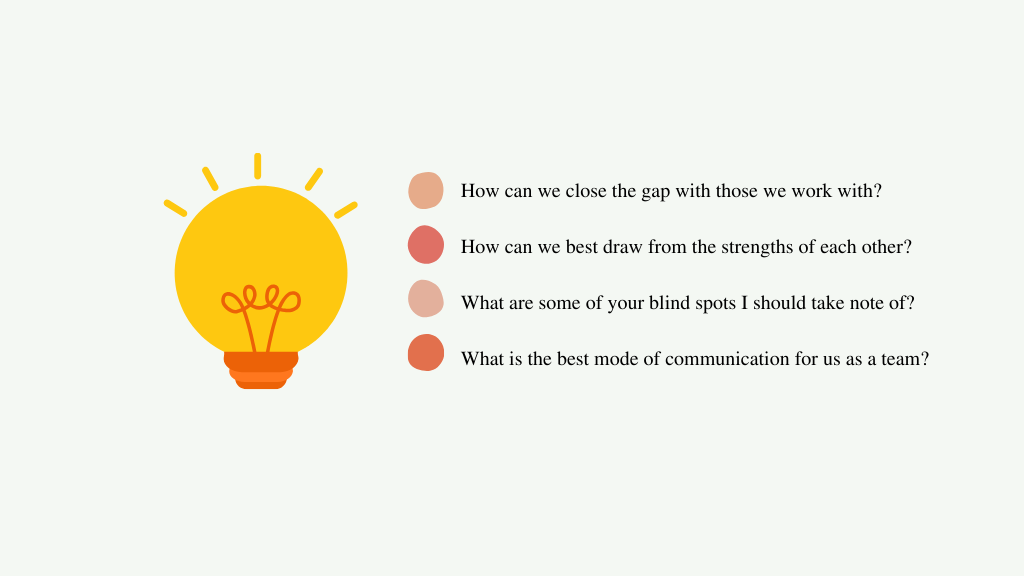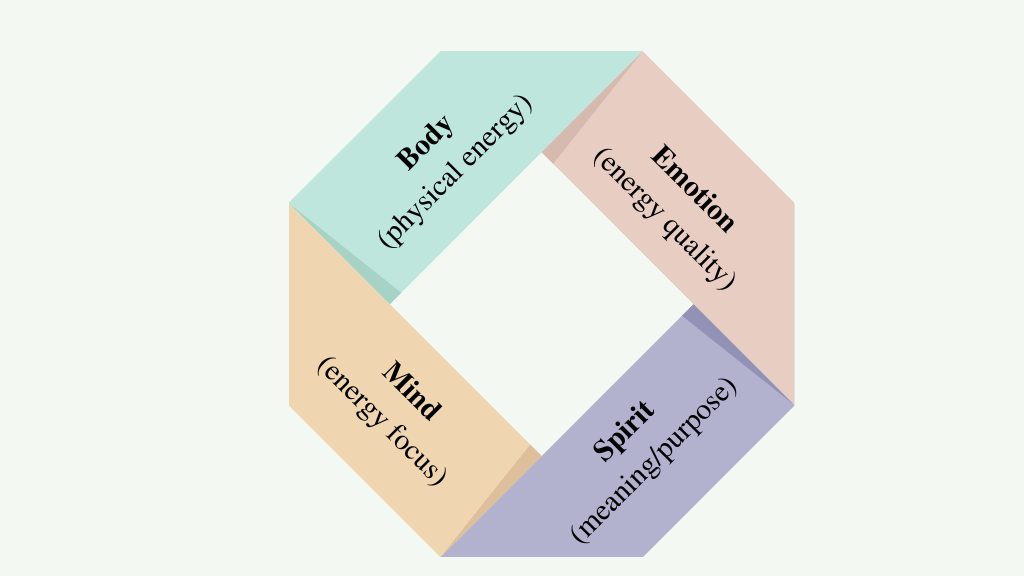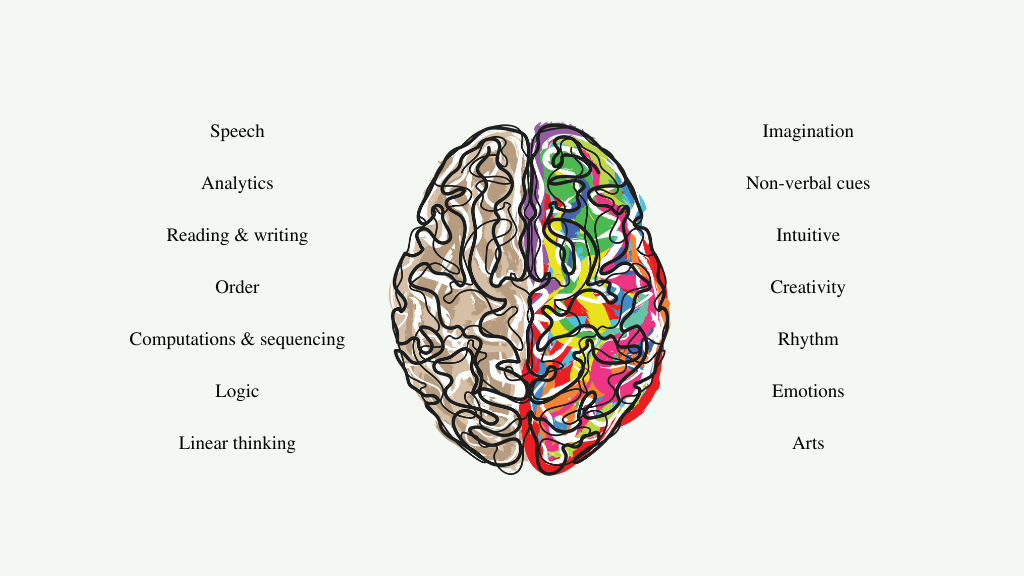3 Strategies on How to build a Holistic Team

Bridging the gap in your team requires hard work. This article outlines three strategies for building a holistic team, focusing on interpersonal dynamics, energy management, and decision-making skills. It highlights the benefits of team diversity, rituals for managing energy levels effectively, and techniques for improving your decision-making process.
6-minute read
By Destiny Goh
Communication and teamwork are probably the top two points most people write in the foundations to build a winning team. Finishing strong shouldn’t be your only goal but the wholesome experience through learning processes and bridging gaps in your team.
How do you build a holistic team?
Strategy 1: Interpersonal strategies and diversity
Mckinsey & Company reports that companies with more diverse teams have 53% higher ROEs and are also top financial performers. According to this report, these teams comprise of foreign executives, age, gender-balanced and diversity recruitment.
Globalisation Partners reported 66% of leaders’ build global teams as part of their business strategy, 81% of businesses are actively recruiting globally; a whopping 79% of professionals are keen on working for global companies.
It’s proven that diversity spurs innovation, brings competitive advantage, wins and retains top talent, thus improving customer and employee satisfaction and decision-making.
‘Diverse teams have 53% higher ROEs and are top financial performers.’
As a leader, it’s important to understand personality and thinking differences in your team before starting a project. Rather than putting them aside, try discussing your strategies and how you can best manage them to create a productive team.
Allocate time to understand your members–how they handle tasks, perceive, and interpret things, and communicate their ideas and solutions. This will establish a clear line between work and personal boundaries.
It creates a safe space for innovative and productive work despite the occasional tension and disagreements. It’s time to let go of your expectations for perfection.
Here are some questions to ask one another:

Strategy 2: Energy Management
Though finite, time is of the essence. At work, everything is seemingly urgent and requires immediate attention with little breathing space.
As a result, people work longer hours, inevitably impacting our bodies, minds, and emotions. Looking deeper, you’ll see declining engagement levels, easily distracted minds, and people leaving the organisation.
The Energy Project put Wachovia Bank through a pilot energy management program and measured its performance against a controlled group. 68% reported that their relationships with clients and customers were positively impacted; 71% reported a noticeable, substantial change in performance productivity.
The study focuses on four key aspects:

Illustrated based on The Energy Project’s approach
To enhance each aspect, simple ‘rituals’ were introduced to a group of Wachovia employees to tackle energy-depleting habits. The study’s success proved many desire change.

illustrated from The Energy Project study done on Wachovia Bank
The results above showed how these ‘rituals’ contribute to individual energy management.
Findings conclude that there is power in creating rituals and habits. Energy levels are renewed and sufficiently displaces in the time spent on a task in return for wholesome and sustainable performance.
Keep an eye out for the energy-consuming habits that are hindering your A-game.
Strategy 3: Refine your decision-making skills
Harvard Business School professor Gerald Zaltman suggests that 95% of our cognition occurs in the subconscious mind.
We instinctively and concurrently make decisions with information subconsciously stored in our brains. With an average of 35,000 decisions made daily, remember that our choices impact those around us and compound over time.
Note that some factors will affect the decision’s outcome, such as not considering facts and figures, unstable emotions, distractions, lack of courage, and people-pleasing tendencies.
‘We make an average of 35,000 decisions daily.’
Great leaders make balanced decisions that tap into both brain hemispheres.
They use logical reasoning and data-driven insights to solve problems and brainstorm other feasible options.

illustration adapted from CENTURY medical and dental center
Though the ‘logical’ side of your brain understands the goal of a decision made, the ’emotional’ side, however, tends to favour immediate benefits that gives instant gratification.
You can achieve this by slowing down your thinking process and pausing. Take note of the minute details you missed or the multiple angles and possibilities of solving the problem. Though it’s important to acknowledge the emotions that come with, yet it should not drive your ultimate decision.
Dissecting complex decisions is another strategy to help one see things vividly.
Coach and entrepreneur Amanda Reill shares that daily journaling enabled her to pen down more than mere thoughts. Realisation hits the more she writes, with logic and reasoning to explain her thoughts which eventually results in new-founded resolutions or even clarity.
Penning down your thoughts allows you to organise, clarify and seek a breakthrough through practice. As you reflect on what you’ve journaled over time, you’ll see some recurring patterns you’d like to build on or eliminate for better decision-making practices.
Great leaders understand that wholesome outcomes take time. From cementing a firm foundation to piling on bricks of trust, value, mindset, and endurance, inviting others onboard, and investing in them to keep it going.
If you’re an organisation looking for talents, please reach out to comms@goodjobcreations.com.sg

